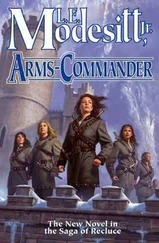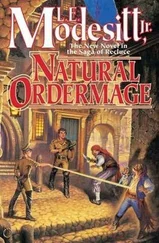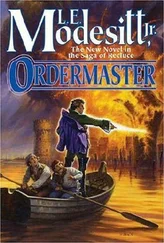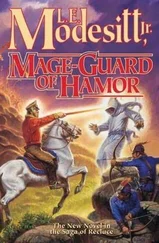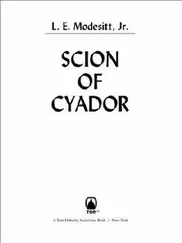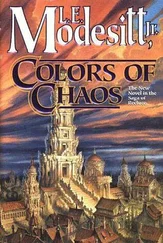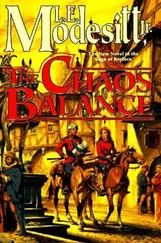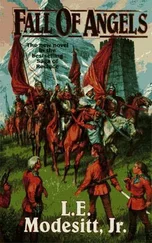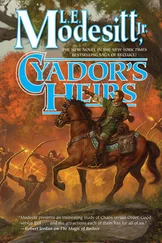L. Modesitt - Scholar
Здесь есть возможность читать онлайн «L. Modesitt - Scholar» весь текст электронной книги совершенно бесплатно (целиком полную версию без сокращений). В некоторых случаях можно слушать аудио, скачать через торрент в формате fb2 и присутствует краткое содержание. Жанр: Фэнтези, на английском языке. Описание произведения, (предисловие) а так же отзывы посетителей доступны на портале библиотеки ЛибКат.
- Название:Scholar
- Автор:
- Жанр:
- Год:неизвестен
- ISBN:нет данных
- Рейтинг книги:3 / 5. Голосов: 1
-
Избранное:Добавить в избранное
- Отзывы:
-
Ваша оценка:
- 60
- 1
- 2
- 3
- 4
- 5
Scholar: краткое содержание, описание и аннотация
Предлагаем к чтению аннотацию, описание, краткое содержание или предисловие (зависит от того, что написал сам автор книги «Scholar»). Если вы не нашли необходимую информацию о книге — напишите в комментариях, мы постараемся отыскать её.
Scholar — читать онлайн бесплатно полную книгу (весь текст) целиком
Ниже представлен текст книги, разбитый по страницам. Система сохранения места последней прочитанной страницы, позволяет с удобством читать онлайн бесплатно книгу «Scholar», без необходимости каждый раз заново искать на чём Вы остановились. Поставьте закладку, и сможете в любой момент перейти на страницу, на которой закончили чтение.
Интервал:
Закладка:
Quaeryt shook his head and laughed. “I’m a scholar, and I don’t think the princeps or the governor is about to listen to my words on military tactics and who’s best at what. I’ve already learned that scholars who say too much about what they don’t know are like fish.”
Phargos smiled, but said nothing.
“Like fish?” asked Meinyt.
“Did anyone ever catch a fish who kept its eyes open and its mouth shut?”
The two officers laughed, and Meinyt sat down beside Quaeryt.
By then the table was almost full, and as Phargos had said, most of those farther up the table looked to be undercaptains.
“You came all the way from Solis?” asked the captain.
“By sail, with one storm and a shipwreck.” Quaeryt offered a wry smile. “I thought it would be easier than riding, and I ended up riding the last part, from the Ayerne north, anyway.”
“Sometimes … trying to get out of things just gets you in deeper,” said Meinyt.
“That’s a lesson that’s hard to learn.” Quaeryt grinned sheepishly.
“Don’t tell me we’re getting fried squid again,” groaned Skarpa, looking at the platter that the server set in the middle of the table. “What’s wrong with plain old mutton?”
“It’s the season for squid,” replied Phargos. “Besides, most of the officers and men like fried squid, and the governor tries to make sure they get the fare they like.”
“I know,” sighed Skarpa. “But why the Namer do they all like squid?”
Meinyt laughed, and, for the rest of the meal, Quaeryt did his best to listen and say as little as possible.
35
Samedi morning Quaeryt was up early, not because he particularly wanted to be, especially with the soreness and bruises on his upper arm and shoulder, but because the officers’ mess was open only from fifth to sixth glass and because he wanted to eat before he met with Straesyr, and he hadn’t seen anywhere else around the palace and its grounds to obtain food.
He ended up sitting at the junior officers’ table, several spaces from two undercaptains. No one joined him, and he was reluctant to press himself on others. He did listen, but most of what he overheard dealt with duties and routine, except for a brief interchange.
“… kept talking about the sisters…”
“… so she’s got sisters…”
“… no … this was something different, like the scholars or the choristers…”
“Sisters? Never heard of them…”
“Me neither … gave me the chills … left her right there…”
That had been the second time Quaeryt had heard about the sisters, whatever they were, and it sounded like he needed to learn more about them.
After eating a breakfast heavy on oatmeal porridge, which was thicker and more solid than any Quaeryt had sampled almost anywhere else, along with ham strips, dark bread, and even fruit preserves, Quaeryt made certain that he was in the anteroom outside the princeps’s study a good half quint before the palace bells rang out seventh glass. Even so, he waited another half quint before the aide at the writing table, upon hearing a bell, said, “You can go in, scholar.”
Quaeryt opened the door, entered the study, and closed the door behind himself.
Straesyr did not rise, but gestured to the chairs in front of the table desk. He wore a pale green tunic instead of the blue, with a high collar that reminded Quaeryt of a factor, yet in a way, he wore it almost as if it were a uniform.
“I trust all the arrangements are satisfactory.”
“Most satisfactory, sir.” Quaeryt settled into the chair on the left. “The food in the mess is quite good.”
“The governor insists on good fare for both soldiers and his officers, among other things. He’s very particular about that.” Straesyr’s lips curled momentarily. “Before we begin on dealing with your mission, I’d be curious to know how you became acquainted with Lord Bhayar.” The princeps smiled, but his eyes remained icy blue.
“When we were younger, he studied with the same scholars as I did. Lord Chayar sent him to the Scholarium, rather than have him tutored in the palace.”
“It’s said that Lord Chayar also had him trained in arms, both with the rankers and with junior officers. What do you know of that?”
“Very little, sir. Once, in passing, he made a remark about the sons of High Holders and that they should all spend time being trained like rankers in his father’s regiments. That was the only time I recall him saying anything.”
“You didn’t spend time as a soldier or armsman, then?”
“No, sir.”
“So you’ve been a scholar from birth, essentially.”
“No, sir. I was orphaned very young in the Great Plague and raised by the scholars. I left the scholars and spent six years or so before the mast, and then persuaded them to take me back.”
“Why did you return to the scholars?”
“Seafaring isn’t a way of life that takes to questions. Too much has been learned at the cost of lives, and trying new ways usually doesn’t turn out well.”
“Isn’t that true of most ways of life?”
“It is.” Quaeryt smiled wryly. “But a scholar can ask a few more questions and has the time to try to work out better ways. Or to find better reasons why the old ways work as they do, and that sometimes leads to better ways as well.”
Surprisingly, to Quaeryt, the princeps nodded. “What better ways are you seeking for Lord Bhayar?”
“He hasn’t said.” That was certainly true enough. “He wants to know more about why the people of Tilbor are so difficult.”
“He could have asked the governor or me.”
“Could he, sir?” asked Quaeryt politely, keeping his tone very deferential.
Straesyr stiffened for a moment, then nodded again. “I see your point, scholar. Your presence is the only safe way to raise the question, and that is why Lord Bhayar appointed you as my assistant and not the governor’s.”
“Lord Bhayar never gave me a reason. He just gave me the appointment.”
“His father often did the same. Did you ever meet him?”
“No, sir.”
“What about other members of his family?”
“I was briefly introduced to one of his sisters. I have since received missives from her, inquiring about the prevalence of certain historical practices of rulers.”
“You are most careful about your responses,” observed the princeps.
“I am a scholar beholden to others, sir. They often have many sources of information, as do you. Untruths would be inadvisable, as well as unwise.”
“What do you want to know from me?” asked Straesyr calmly, as if he had discovered what he wished to find out.
“A number of matters … but I would begin with the latest. Last night at the mess, I couldn’t help but overhear officers talking about the backlanders and the timber barons, as if they remained a considerable problem for you and the governor.”
“At one time or another, anyone with arms or power has been a problem,” replied Straesyr. “You did, however, hear correctly. Those who are currently fomenting the most trouble are those in the Boran Hills. Even the few … disruptions near Tilbora appear to be linked to them. I suspect that they are supported by the landholders there who are not High Holders. I have little trust in the High Holders, either, but whenever possible High Holders attempt to have others shed their blood and spend their golds.”
“Why would those landholders in the hills be interested in taking on Lord Bhayar’s forces? From what little I know, you and the governor have been fair to all in applying the laws, and that would seem to benefit them more than the High Holders.” Those were guesses on Quaeryt’s part, but they fit what he had observed so far.
Читать дальшеИнтервал:
Закладка:
Похожие книги на «Scholar»
Представляем Вашему вниманию похожие книги на «Scholar» списком для выбора. Мы отобрали схожую по названию и смыслу литературу в надежде предоставить читателям больше вариантов отыскать новые, интересные, ещё непрочитанные произведения.
Обсуждение, отзывы о книге «Scholar» и просто собственные мнения читателей. Оставьте ваши комментарии, напишите, что Вы думаете о произведении, его смысле или главных героях. Укажите что конкретно понравилось, а что нет, и почему Вы так считаете.

